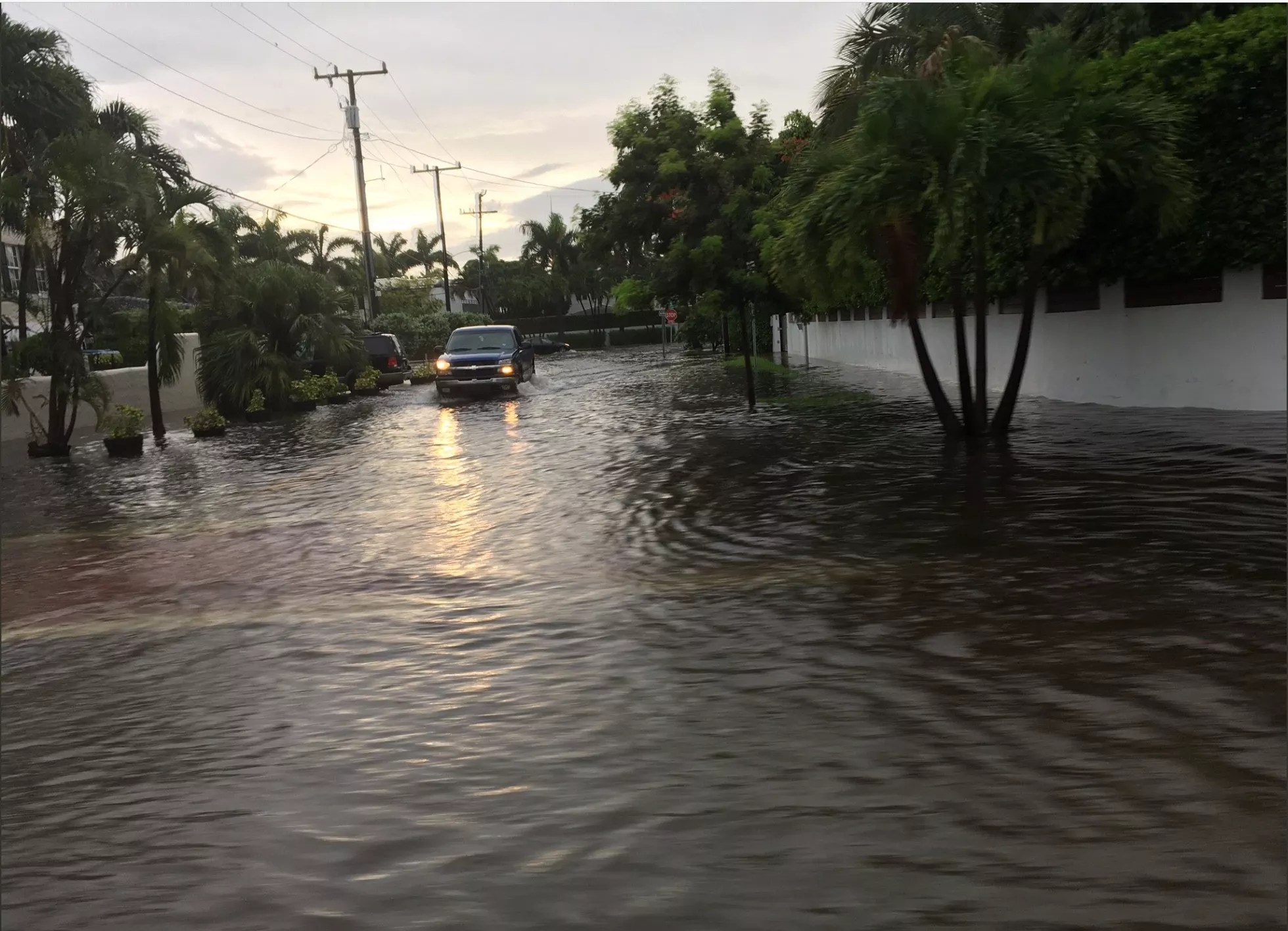
Photo Courtesy of Tomas Kennedy

Audio By Carbonatix
Seawalls. Hotel lobbies designed to flood. Raising roads. Installing pumps to suck floodwater underground. Miami-area politicians have undertaken a smorgasbord of projects designed to mitigate the effects of climate change and sea-level rise in America’s most ocean-vulnerable city.
But a massive federal report on climate change leaked to the New York Times warns that unless the world unites to drastically cut back carbon emissions, the earth will continue to warm, and the good intentions of Miami politicians will inevitably get sucked into the sea.
Today, a group of concerned scientists leaked the landmark climate-change report to the Times, since the results were damning and the researchers said they feared the Trump administration would suppress the final draft. The report is the latest update of the National Climate Assessment, a study conducted every four years that includes data from 13 federal agencies. Each year, the report has grown more terrifying, and the current draft is no different. The study warns that, in the four years since the last NCA was issued, the climate-research community has only become more certain about the impacts of global warming.
The majority of climate scientists predict that warming of more than two degrees Celsius could significantly alter life in change-vulnerable areas like Miami. The report warns that only a sustained, global commitment to forcing down carbon emissions will save places like South Florida.
“Stabilizing global mean temperature below 3.6°F (2°C) or lower relative to preindustrial levels requires significant reductions in net global CO2 21 emissions relative to present-day values before 2040 and likely requires net emissions to become zero or possibly negative later in the century,” the study warns. Twenty-nine lead authors wrote the report, including researchers from NASA, the National Oceanic and Atmospheric Association, the U.S. Army Corps of Engineers, the Department of Energy, Columbia University, and the University of Washington.
If warming continues along its current path, the NCA report confirms that awful weather patterns are all but guaranteed in the near future. The report warns that many of the impacts South Florida
“Human-caused climate change has made a substantial contribution to global mean sea level rise since 1900, contributing to a rate of
To be fair, there is a measure of uncertainty in the report. But what climate scientists and anti-warming naysayers call “uncertainty” are two markedly different things. The 669-page report notes that scientists don’t all agree on how intense the impacts of major storms, flooding, and droughts may be in the future, or how much planetary warming has contributed to the extreme weather events we’ve seen recently. (Notably, the report shied away from definitively blaming recent heat waves in the Southeast on climate change.)
But compared to the last NCA report, the scientists universally have become more certain that carbon emissions are warming the planet.
In fact, the nearly 30 scientists said the global temperature has spiked at unprecedented levels since
That advice runs counter to the narrative many local and national Florida politicians have pushed in recent years: Florida politicos are happy to talk about (admittedly quite necessary) infrastructure upgrades like flood-pumps, but tend to stay quiet when it comes to the actual fights needed now to stop warming.
The report makes clear that sanctioning the nation’s largest carbon polluters is the only clear path to keeping the world at two degrees of warming or less. Meanwhile, the Florida political world is currently bogged down with debates over whether climate change is real at all, let alone that the first, third, and 13th-largest carbon-emitters in the nation are power companies that operate in Florida (Duke Energy, the Southern Company, and NextEra Energy, respectively). A report issued two weeks ago warned that those three companies have known about the impacts of climate change since at least 1968.
Waiting on massive, fossil-fuel-dependent companies to voluntarily cut emissions will do little but kill Miami. The report strongly suggests that only a sustained political movement to heavily regulate carbon-emitters and force the country to set up fully clean-power initiatives will prevent the city from drowning and/or boiling.
Yet senators like Marco Rubio and Bill Nelson will not fight for even modest